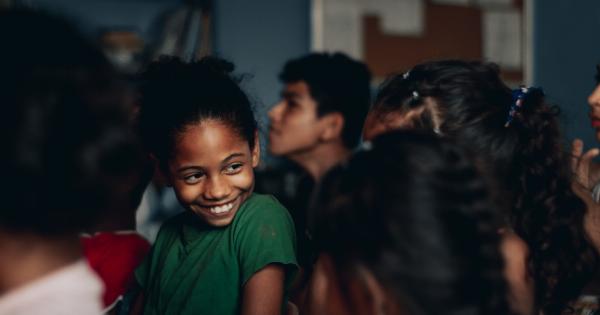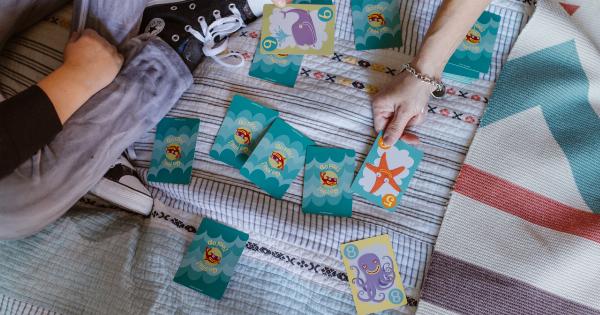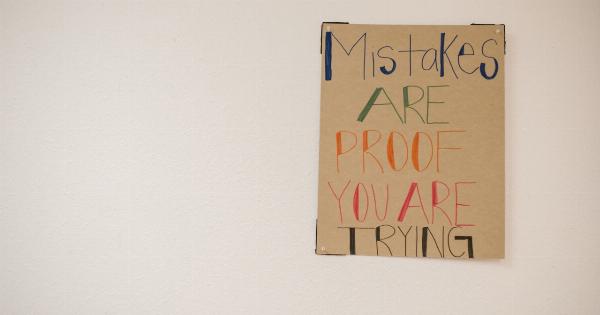Parenting is an incredible responsibility. It’s a balancing act between teaching, guiding, and nurturing while also setting boundaries and rules. Each parent has their unique style of parenting based on their knowledge, values, and personality.
However, when it comes to being a perfect parent, everyone falls short. No one can be perfect, but the good news is that we can always become better.
The Importance of Self-Awareness
Parenting is not an innate ability; it’s a learned skill. The more you learn, the better you become. A crucial aspect of becoming a better parent is self-awareness.
As a parent, you need to recognize your strengths and weaknesses and identify areas you need to improve. It is crucial to reflect on your parenting style and assess how it impacts your children. Some of the questions you can ask yourself are:.
- Am I too lenient or too strict?
- Do I listen and communicate with my child?
- Do I model the behavior I expect from my child?
- Do I foster independence and confidence in my child?
Self-awareness will help you be honest with yourself and identify areas of improvement for your parenting style. Once you have identified these areas, you can then take necessary steps to make changed and improve as a parent.
Listening and Communication
Effective communication is fundamental to good parenting. It’s essential to listen to your child and communicate with them in a way that makes them feel heard and understood. Children need to feel like their opinions and feelings matter.
As a parent, you need to create an open and safe environment where your child can express themselves without fear of judgment.
Communication is not just about speaking; it’s also about non-verbal cues like body language and tone of voice. As a parent, you need to pay attention to your body language and tone when communicating with your child.
Be mindful of the message your body language and tone are sending.
Setting Boundaries and Consequences
Setting boundaries and rules is a vital aspect of parenting. Children need boundaries to feel safe and secure, and they need rules to develop self-discipline. However, setting boundaries and rules can be challenging.
You need to find a balance between being too strict and too lenient.
When setting boundaries and rules, it’s essential to explain to your child why they are necessary and what the consequences will be if they are not adhered to.
Consequences should be reasonable and predictable, and they should be enforced consistently. It’s essential to stick to the rules and consequences you set as a parent, even if it means dealing with challenging behavior.
Modeling the Behavior You Expect from Your Child
Parenting is not just about telling your child what to do; it’s also about showing them how to do it. Children learn by modeling the behavior of their parents.
If you want your child to be kind, respectful, and honest, you need to model those behaviors for them.
As a parent, it’s essential to be aware of the behaviors you model for your child. Some behaviors you may want to model for your child include:.
- Being respectful to others
- Being a good listener
- Being responsible
- Taking care of yourself
Modeling positive behavior will help your child develop important social and emotional skills that will benefit them throughout their lives.
Fostering Independence and Confidence
One of the goals of parenting is to raise independent and confident children. Children who are independent and confident are more likely to succeed in life and have healthy relationships.
However, fostering independence and confidence in your child can be challenging.
One way to foster independence and confidence in your child is by giving them age-appropriate responsibilities. Encourage them to take on tasks like making their bed, washing dishes, or doing laundry.
When your child accomplishes these tasks, praise and encourage them, which will help build their confidence.
Another way to build your child’s self-confidence is by giving them opportunities to make their own decisions. Let them choose what clothes to wear or what activities to do. Encourage them to think for themselves and express their opinions.
Being a Better Parent is a Journey
Becoming a better parent is not a destination; it’s a journey. It’s a journey of growth and self-improvement. As a parent, you will make mistakes, but it’s essential to learn from those mistakes and make changes.
Remember that the most important thing is to love and support your child unconditionally. Every day is an opportunity to become a better parent and create a positive impact on your child’s life.
In Conclusion
Being a parent is a challenging and rewarding experience. No one is perfect, but we can all become better. It starts with self-awareness and identifying areas of improvement.
Effective communication, setting boundaries, modeling positive behavior, and fostering independence and confidence are essential aspects of being a good parent. Remember that being a better parent is a journey, and it’s never too late to start.



























